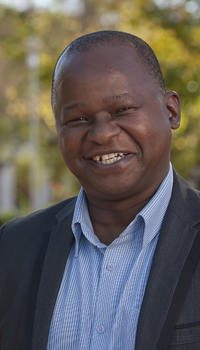Latest News Archive
Please select Category, Year, and then Month to display items
23 April 2020
|
Story Cornelius Hagenmeier
|
Photo Pixabay

The iKudu project, which is an European Union-funded Capacity Building in Higher Education (CBHE) project, has recently launched its blog, which aims to amplify the diverse voices of all iKudu stakeholders. In this space, members of the iKudu team will regularly share their views on the project and related international education topics.
The iKudu project focuses on developing a contextualised South African concept of Internationalisation of the Curriculum (IoC), which integrates Cooperative Online International Learning (COIL) virtual exchanges. The project was launched by the UFS in 2019, together with nine European and South African partner universities. It is funded by the European Union’s Erasmus+ programme with EUR999 881 (approximately R20 million) and is implemented over a three-year period.
The iKudu project is based on the fundamental belief that it is necessary to rethink internationalisation in an uncertain world. First, it is crucial to recognise and transform the power dynamics underlying international academic collaboration. Second, it is essential to develop pedagogies that allow every student to participate in international education, integrating technology where appropriate.
However, while all stakeholders agree on the fundamental tenets of the project and its principal goals, all iKudu stakeholders contribute different perspectives. In the blog, the iKudu stakeholders will provide a space for intellectual discourse on the project and related international education topics, which will allow constructive and critical engagement.
The link to the blog can be found at: https://www.ufs.ac.za/ikudu/ikudu-blogs/Transforming-Curricula-through-Internationalisation-and-Virtual-Exchanges
South African citizens are yearning for a good story to tell
2014-03-13
|

Dr Sethulego Matebesi
Photo: Sonia Small |
The 20 Year Review is in essence a continuation of President Jacob Zuma’s State of the Nation Address and the ‘we have a good story to tell’ narrative. The report provides a glowing picture of successes achieved over the two decades. The successes highlighted include the basic human rights enjoyed by South Africans, a marked improvement in economic growth, and the provision of social services such as health care, education and housing. And as expected, the Review is dedicated to Nelson Mandela.
The major accomplishments were made through the strategic policies of the ruling African National Congress (ANC). For example, emphasis has been on improving the lives of South Africans through pro-poor economic interventions, in building social cohesion, investing in economic infrastructure, fighting HIV and AIDS and tuberculosis, which resulted in improved health outcomes.
Generally, the assertions about ‘accomplishments’ have been made against solid evidence and are thus not debatable. What overshadows the 20 Year Review, is the story that is not being told. This is the story of a political economy marred by rampant corruption, high levels of unemployment, declining accountability, and unresponsiveness. This untold story has become the hallmark of President Zuma’s tenure. Meanwhile, the average South African citizen is still yearning for ‘a good story to tell.’
For more political comment or to speak to Dr Matebesi, please call René-Jean van der Berg at +27(0)83 645 5940.